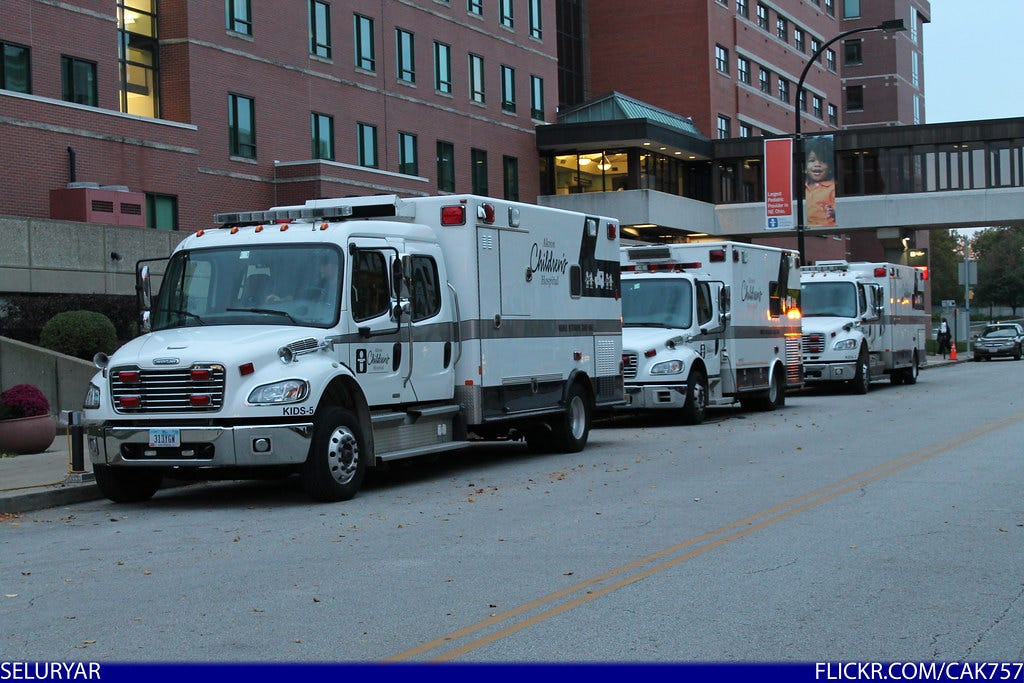The Oklahoma-Ivermectin Story: A Case Study In Post-Journalism

Last week, a local Oklahoma outlet made a startling claim: so many Oklahomans are overdosing on the drug ivermectin that hospitals aren’t able to meet demand from people getting shot:
Dr. McElyea said patients are packing his eastern and southeastern Oklahoma hospitals after taking ivermectin doses meant for a full-sized horse, because they believed false claims the horse de-wormer could fight COVID-19.
“The ERs are so backed up that gunshot victims were having hard times getting to facilities where they can get definitive care and be treated,” he said.
That claim was quickly picked up by national media outlets, including Rolling Stone. Cable news had no problem running the story, either. From MSNBC:
Tellingly, none of these outlets appeared to be very interested in whether the story was actually, in fact, true. There would’ve been a simple way to figure that out — just call some Oklahoma hospitals and confirm the account.
They would’ve quickly figured out that there wasn’t really any evidence for the claim. Northeastern Hospital System Sequoyah, based in the region of Oklahoma at the epicenter of the claim, put out a statement shooting the whole story down:
Although Dr. Jason McElyea is not an employee of NHS Sequoyah, he is affiliated with a medical staffing group that provides coverage for our emergency room. With that said, Dr. McElyea has not worked at our Sallisaw location in over 2 months. NHS Sequoyah has not treated any patients due to complications related to taking ivermectin. This includes not treating any patients for ivermectin overdose. All patients who have visited our emergency room have received medical attention as appropriate. Our hospital has not had to turn away any patients seeking emergency care. We want to reassure our community that our staff is working hard to provide quality healthcare to all patients. We appreciate the opportunity to clarify this issue and as always, we value our community’s support
In fact, if you go to the hospital system’s website, the very first thing that pops up is a special splash page debunking the story:
It’s understandable why NHS Sequoyah would want to go to such lengths to stop this misinformation. It’s hard to get access to good health care in many of America’s rural regions. Rural hospitals are the life’s blood of these communities. If you can’t trust that you’ll get care at a rural hospital, you may have to drive hours in perilous conditions in order to seek help. The story had absolutely dangerous connotations, and given the virality of it, it’s possible that many people within the region still think it’s true.
One question an old-fashioned, traditional journalist might have when approached with this story is whether it passes the sniff test. It’s certainly possible that rural Oklahoma is being overwhelmed with gunshot victims and people overdosing on a drug most Americans have probably never heard of. But is it likely?
This is an excerpt from today’s subscriber-only post. To read the entire article and get full access to INQUIRE, you can subscribe for $6 a month or $60 a year.



